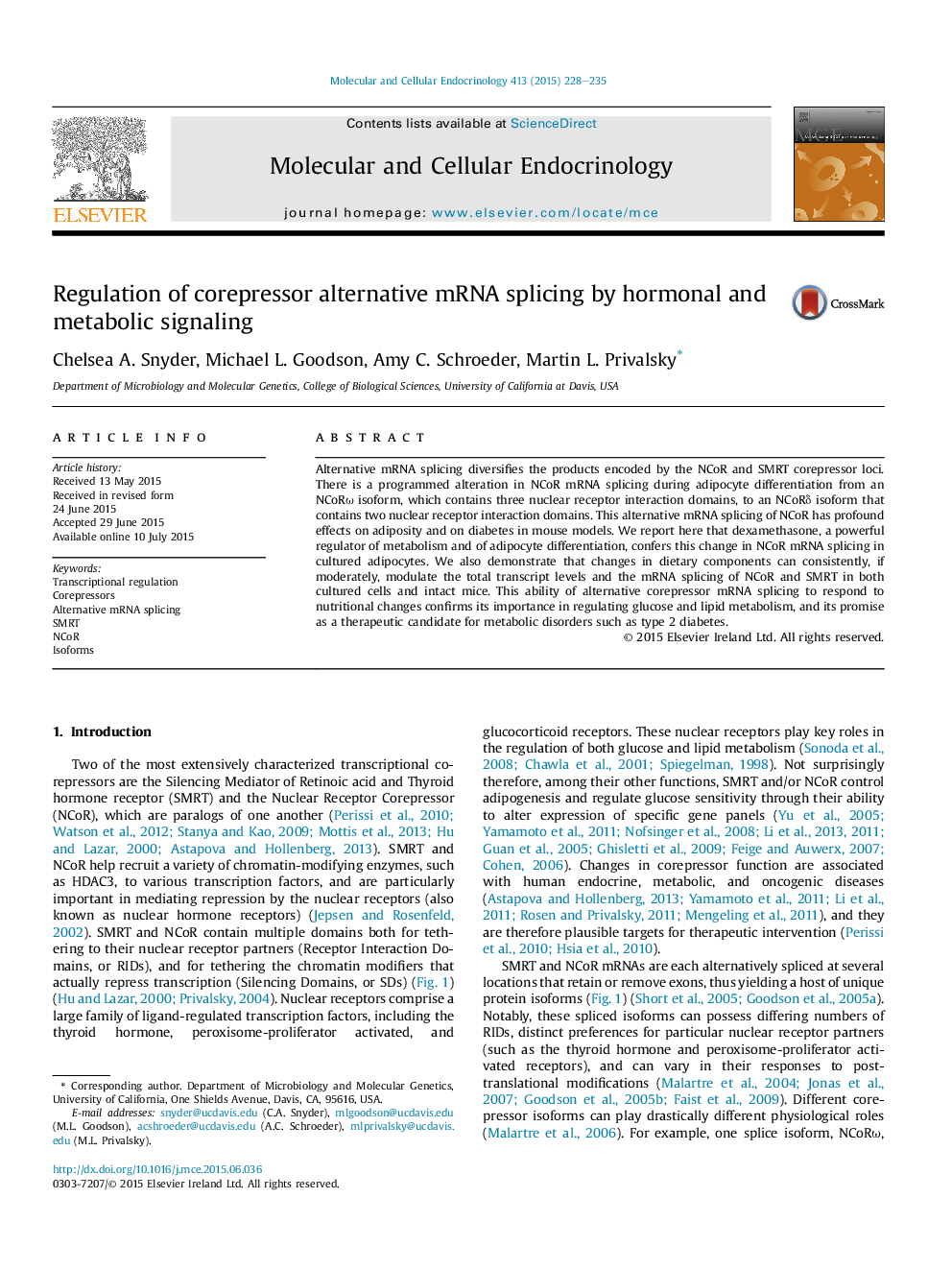| Article ID | Journal | Published Year | Pages | File Type |
|---|---|---|---|---|
| 2195671 | Molecular and Cellular Endocrinology | 2015 | 8 Pages |
•Glucocorticoids regulate changes in NCoR splicing that affect adipogenesis.•Dietary inputs influence corepressor splicing in fat cells, liver cells, and mice.•These findings may permit novel clinical interventions in human metabolic diseases.
Alternative mRNA splicing diversifies the products encoded by the NCoR and SMRT corepressor loci. There is a programmed alteration in NCoR mRNA splicing during adipocyte differentiation from an NCoRω isoform, which contains three nuclear receptor interaction domains, to an NCoRδ isoform that contains two nuclear receptor interaction domains. This alternative mRNA splicing of NCoR has profound effects on adiposity and on diabetes in mouse models. We report here that dexamethasone, a powerful regulator of metabolism and of adipocyte differentiation, confers this change in NCoR mRNA splicing in cultured adipocytes. We also demonstrate that changes in dietary components can consistently, if moderately, modulate the total transcript levels and the mRNA splicing of NCoR and SMRT in both cultured cells and intact mice. This ability of alternative corepressor mRNA splicing to respond to nutritional changes confirms its importance in regulating glucose and lipid metabolism, and its promise as a therapeutic candidate for metabolic disorders such as type 2 diabetes.
